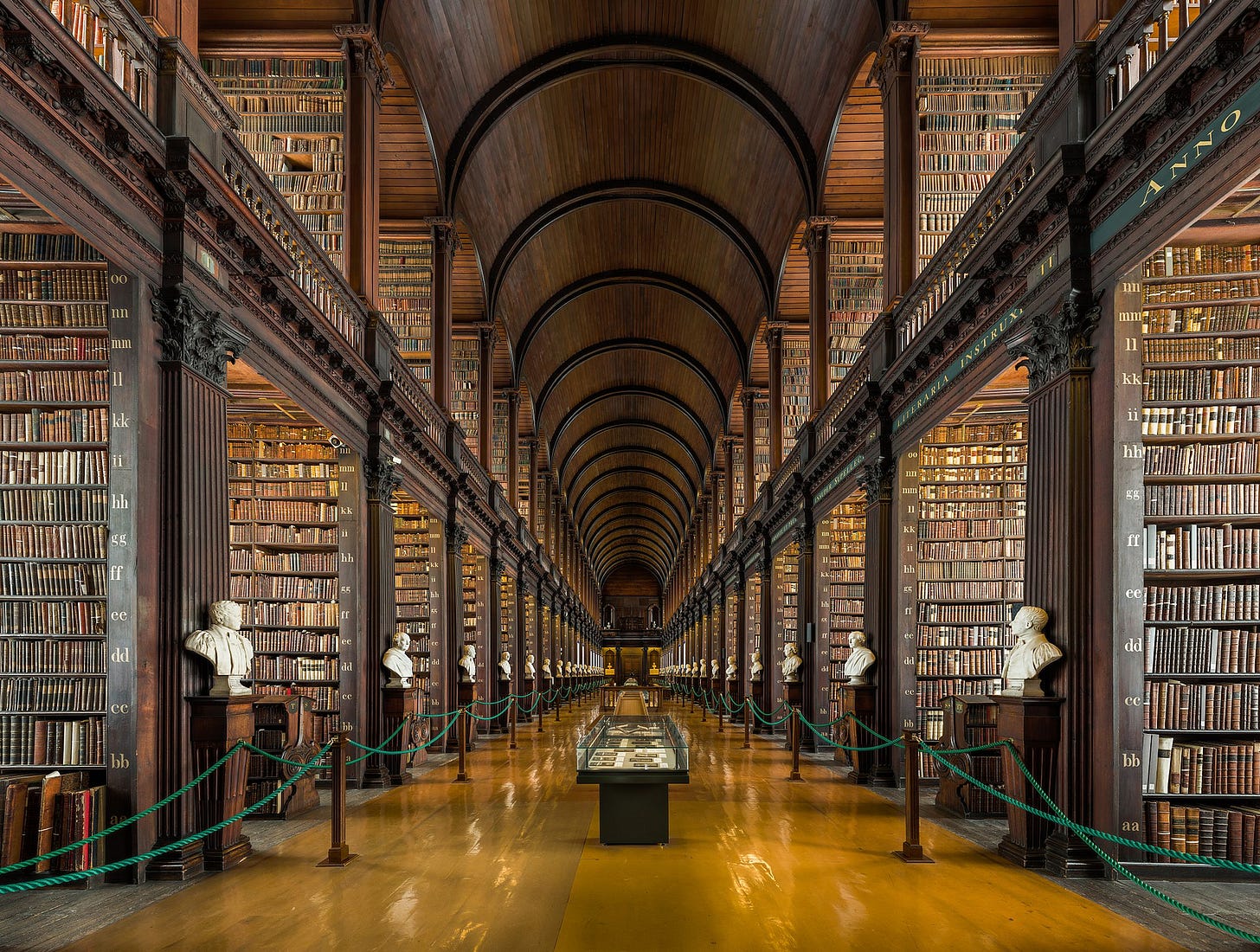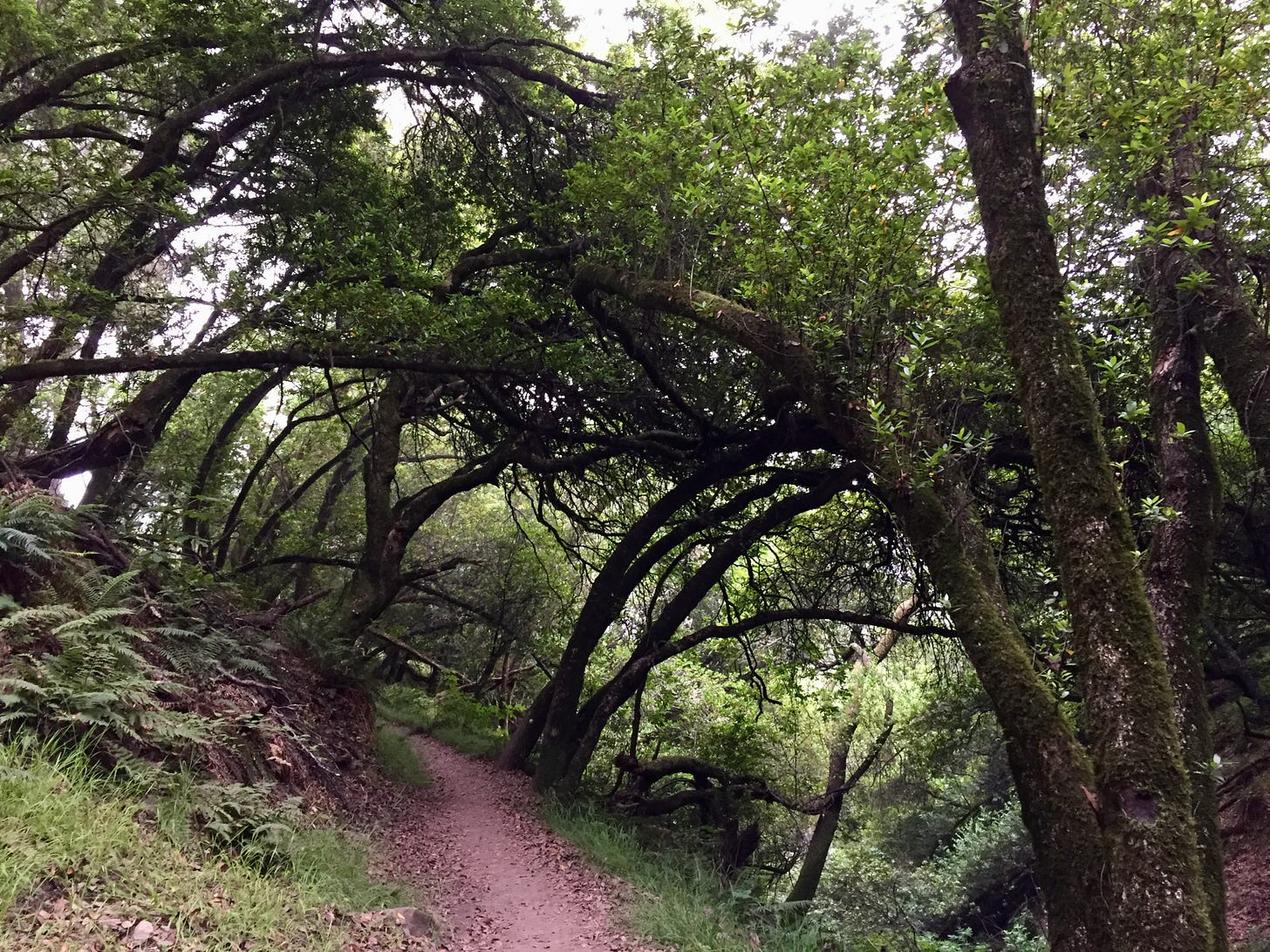The other day, I came across this Facebook post by Rebecca Solnit, a prolific writer and presumably also an avid reader:
If it’s hard for her to read books anymore, where does that leave the rest of us? And what about reading other things — like Substack newsletters?
Sales up, reading down
Americans, it turns out, are still buying books, whether or not they read them. In fact, book sales have gone up even as reading has declined. I don’t love chain stores of any kind, but sales at Barnes & Noble went up during the pandemic, thanks to a new CEO who loves books.
Some feel there’s value to owning lots of books, even if you don’t read most of them. A 2019 study found that growing up in a home with at least 80 books (lower than the average number for Americans of 114) results in significantly higher literacy levels. Presumably, that includes a tendency to read more.

So, that’s something.
Still, most of us are likely reading less these days — although there’s so much more to read than ever before.
That doesn’t apply just to books. Ramona Grigg recently expressed concern in her Substack newsletter, Writer Everlasting, that readers are burned out. We’re all bombarded constantly by words demanding to be read. That can make it hard for writers to find our audience.
So much to read, so little time
And yet … many of us are still reading.
If you’re like me, you may feel like you’re reading all the time. I have to admit that a lot of my reading consists of perusing social media, catching up on emails, and checking out whatever random article of interest pops up. Just the fact that things “pop up” as they do now has changed the reading equation.
Still, I do read a fair number of articles, even if they represent only a fraction of the interesting-looking ones that come across my radar. And I read some books, though that goes in spurts. What gets me reading books:
Being part of a book group.
Friends writing books. Check out Cutting Back by Leslie Buck, The Spirit Photographer by Jon Varese, Reimagining Sustainable Cities by Stephen Wheeler, and Murder at the Palace by Margaret Dumas. I have some talented friends!
Hearing about books that are just so compelling that I have to check them out, like The Dawn of Everything (though I have yet to finish all 500+ pages).
Wanting an escape, which, of course, means reading fiction — something I don’t feel like I do enough anymore.
When I was younger, I didn’t need any prompting to read books. There were even times when I had to be pried away from books and encouraged to go play outside. I grew up with regular bedtime stories, in a house with plenty of books. I didn’t read all of them, but books seemed like a natural part of life. So that might have played a role in making me a reader. But my reading patterns have changed throughout my life, which is likely true for most of us.
Can you shortcut reading and writing?
With so much to read and so little time, it’s nothing new for people to come up with ways to read more in less time. I remember speed reading being a thing, long ago. And Cliff’s Notes — are people still using them?
But lately, there seems to be a proliferation of tools to shortcut both reading and writing.
An ad was served up to me recently for Blinkist, a service that promises to help you “understand books & podcasts in 15 minutes.” Apparently, doing this will make you more knowledgeable, more successful, healthier, and happier. Wow! Why didn’t I think of reducing complex and nuanced topics to 15 minutes? Apparently, I’ve been missing out.
Moving on to writing, the book Smart Brevity promises to “make you a more forceful communicator” by — you guessed it — writing much less. I’ll cover this one in my next newsletter, but you can probably already see a theme emerging. Boiling books and articles down to bite-sized pieces is being touted as just as good as, or better than, delving into a subject at length.
It’s no longer just about reading. There are tools to help you write blog posts faster, tools to help you write better, and tools to assist you as you write.
And now, we don’t even have to do the writing ourselves. Though it’s been in the works for a while, suddenly everyone is talking about the chatbot ChatGPT, an AI tool that can be used for writing. ChatGPT is also worth its own newsletter — which I promise I will write myself, without the aid of a bot.
For now, in an acknowledgment of the busyness you’re likely experiencing as the new year revs up, and the continuing bombardment of reading materials of all kinds, I will refrain from expounding on these tools. But if you’ve read any fairy tales, you know how things usually end when you take a shortcut.
Are you reading less? Let me know in the comments how reading is going for you!








Ah, Rosana... a very interesting set of words. And I thank you for it. Personally, I think I'm not reading less, even though I have retired, and rarely read academic papers, reports, etc. anymore. Basically, I'm reading a lot more emails (which I would rather not do), and things related to everyday life like bills, accounts etc. These are also not enjoyed, but they are necessary. What I do find is that I am reading more fiction! And it is probable in an effort to escape the realism. And, I am reading it on my Kindle, which I dearly love, simply because it is so convenient to take anywhere. (I have backbreaking memories of my first trip to Europe many years ago, and taking so many books with me, because I wasn't sure where I could find them, in English. I would have really appreciated a Kindle type apparatus then).
But, in spite of my escapist fiction (science, historic, crime, etc), I just went directly to Amazon and bought the real book that you mentioned---The Dawn of Everything. And I can hardly wait for it to arrive. (This kind of topic is always interesting to me.) Again, I thank you for this set of words!
Keep writing...every bit as important as reading.
ChatGPT signed up for Blinklist to gain better understanding of Smart Brevity. Overall it got confused. It’s a true story!